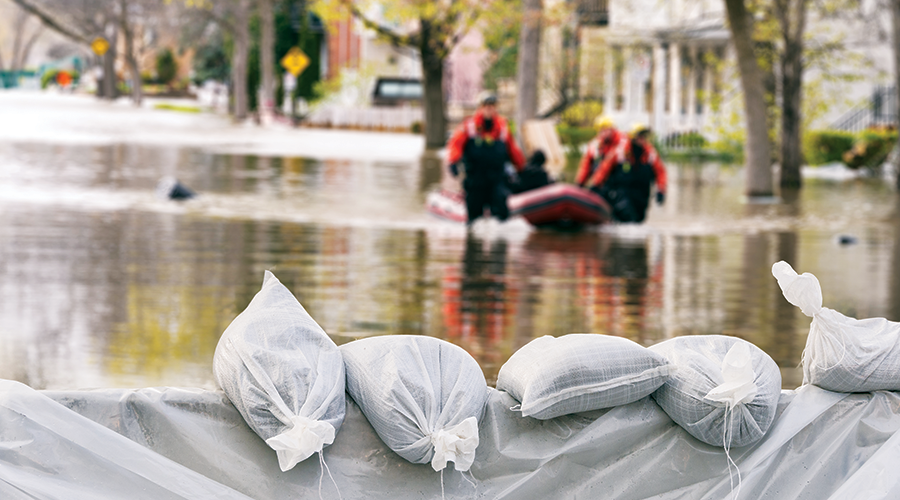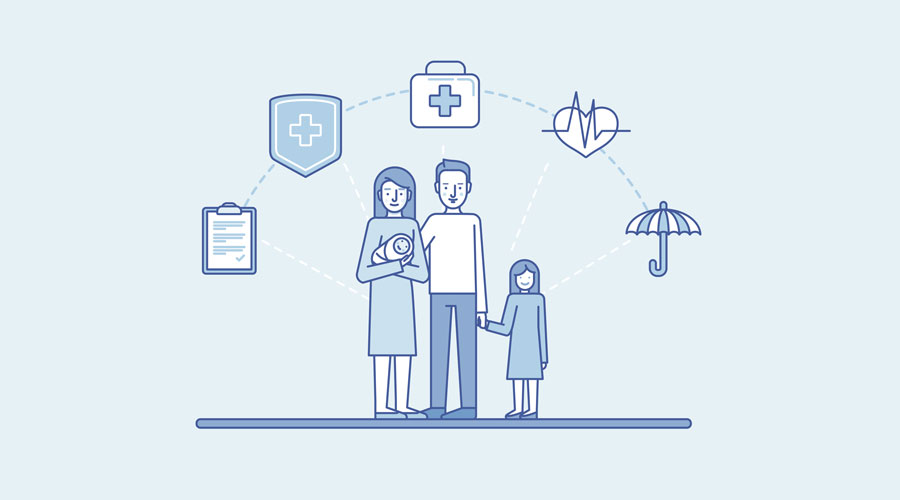In the face of the world’s natural disasters, you play a vital role in protecting public health and providing essential care to your community. As a frontline healthcare provider, you’re often among the first responders during emergencies, offering critical services and support during all the chaos and uncertainty.
Emergencies are bound to happen in your community, but you don’t want to be caught unprepared when one strikes. Whether it’s a tornado, blizzard, hurricane, flood, or a power outage, you need to be ready. With the proper planning, you can protect your pharmacy business from the unexpected.
According to the Journal of Accountancy, more than 60 percent of U.S. small businesses do not have a formal emergency-response plan and fail to back up their financial data off-site. Additionally, The Small Business Disaster Preparedness Study, conducted by software maker Sage North America, found that while 94 percent of small U.S. businesses back up the financial information stored on their computer systems, most store their backups on-site. However, backing up on-site isn’t enough to protect you from losing your data, especially if your location is prone to natural disasters, theft, or hardware malfunction. Your data needs to be backed up off-site if you want to be able to recover it.
Nearly 25 percent of businesses do not reopen after a disaster. This is why having an emergency disaster and continuity plan in place is so important. It can reduce the risk and help your pharmacy recover faster.
By planning ahead, you can stay in business after a disaster strikes. Here’s how:
Create a communications plan:
This will keep you in touch with your patients, suppliers, and employees. Give your employees information on when, if, and how to report to work after a disaster. Working remotely is an option to consider if there’s administrative work that needs to be done.
Keep your important contact information up to date and check your plan each quarter to be sure you have the right agencies, phone numbers, and contacts listed. This includes your insurance agent; drug enforcement administration (DEA); police and fire; state pharmacy association; and employees.
It’s also wise to designate a spokesperson ahead of time to talk with patients and/or the media. Be sure this person is familiar with your social-media channels and understands the ins and outs of your pharmacy.
Check your insurance:
Call your provider and make sure your policies have enough damage coverage.
Speak with an insurance agent:
Find out how to protect your business with insurance for fire, tornados, earthquakes, floods, and more.
Keep copies of important records:
Put building plans, insurance policies, bank account and employee contact information, and other important documents in a waterproof container. This should be stored in an off-site location.
Develop professional relationships:
Make sure you’re connected with more than one company in case your primary contractor cannot service your needs.
Prepare to support others:
Be cognizant of any support your employees, clients, and communities may need.
Help your patients plan:
Remember that not all emergencies take place immediately. Some, like hurricanes or snowstorms, give you a few days to prepare before the mayhem moves in. That means you can reach out to your patients who would especially be harmed by non-adherence if they didn’t have access to their medications. Create and follow a plan for ensuring your patients have enough medication to get through the forecasted end of the emergency situation.
It’s also important to educate your patients before severe weather hits or during the time of year when it is most likely to hit. These tips from the FDA are perfect for sharing on your social media, through email, or by adding it to your pharmacy’s phone system as part of the hold message:
- Have an up-to-date list of your medications on hand along with dose and indication.
- Keep a log of how much medication you have.
- In the event of limited pharmacy access, receive early refills.
- To prevent exposure to floodwater, place medication in watertight containers.
- Have ice on hand for refrigerated medications.
- These steps should also be a part of your disaster planning. That way, when threatening weather is on its way, you can quickly jump in to keep your patients safe.
These steps should also be a part of your disaster planning. That way, when threatening weather is on its way, you can quickly jump in to keep your patients safe.
Just in Case
Not sure you have all the safety measures in place in your pharmacy? Use the following four resources to create, evaluate, and enhance your disaster preparedness and business continuity plans for your pharmacy:
The Federal Emergency Management Agency (FEMA)
The program, Ready (ready.gov), by FEMA can help you learn what measures your pharmacy should take before, during, and after a natural disaster to keep your doors open, or to rebuild as soon as possible. Ready offers information for businesses about natural disaster preparation.
The Disaster Recovery Institute
This nonprofit helps organizations prepare for—and recover from—disasters. The Disaster Recovery Institute (drii.org) also provides resources and education that can help your pharmacy develop a continuity plan to continue providing patient care and services following a disaster.
American Red Cross Ready Rating
This self-guided program (readyrating.org) helps businesses like your pharmacy better prepare for emergencies. You can access preparedness assessments, emergency-planning forms, customized feedback and recommendations for improvements, and helpful videos with membership to this free program.
Pharmacists Mutual Companies
Pharmacists Mutual (phmic.com) is a specialized insurance company that offers insurance coverage designed specifically for pharmacies. They can help your pharmacy manage risk, identify liabilities, and manage costs if losses do occur.
When Should You Close Shop?
Your patients expect your pharmacy to be open when they need refills on their medications. When prescription refills are delayed, it can cause life-threatening complications. So, it’s important to have a plan should an unlikely disaster take place. Here are some guidelines you can follow that will help you make that difficult decision during a crisis.
When traveling isn’t safe
Many weather-related incidents make driving to the pharmacy dangerous. Whether it’s snow, ice, flooding, or earthquakes, it can be a scary situation. Depending on the condition, if it’s risky enough that no one should be on the roads, the best thing to do is close for the day.
When your store can’t function
If your pharmacy loses water or electricity or sustains serious damage, operating it safely may not be an option. However, if there’s another pharmacy nearby that is fully operational, consider partnering with them to meet the needs of your patients while you get your store up and running again. Add this agreement to your plan, and be willing to offer the same for other pharmacies.
When you can’t pay employees
Employees should be paid for the work they miss due to an emergency or disaster that required the store to close. Missing out on paychecks unexpectedly can put them in a difficult financial situation. Furthermore, it can create stress that affects their performance at work.
If you find out your employees were affected in other ways by the disaster, such as damage to their home or vehicle, losing their paychecks will exacerbate their situation. If you absolutely cannot afford to pay employees for missed work in a disaster, be sure to write up a policy explaining that they need to use PTO if they have it available or go unpaid if they don’t. It’s important to let them know what to expect so it will soften the blow if it happens.
From the Magazine
This article was published in our quarterly print magazine, which covers relevant topics in greater depth featuring leading experts in the industry. Subscribe to receive the quarterly print issue in your mailbox. All registered independent pharmacies in the U.S. are eligible to receive a free subscription.
More articles from the March 2024 issue:
- Catering to Family Caregivers
- The Silent and Deadly Cholesterol
- A New Year, a New Mindset
- Spring Clean Your Front End
- Find Your Niche
- Diabetic Sales
- Common Accounting Errors
- When Disaster Strikes
A Member-Owned Company Serving Independent Pharmacies
PBA Health is dedicated to helping independent pharmacies reach their full potential on the buy-side of their business. Founded and run by pharmacists, PBA Health serves independent pharmacies with group purchasing services, wholesaler contract negotiations, proprietary purchasing tools, and more.
An HDA member, PBA Health operates its own NABP-accredited warehouse with more than 6,000 SKUs, including brands, generics, narcotics CII-CV, cold-storage products, and over-the-counter (OTC) products — offering the lowest prices in the secondary market.












